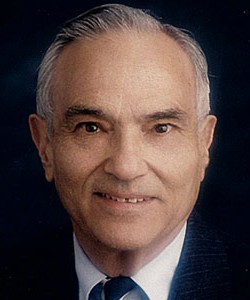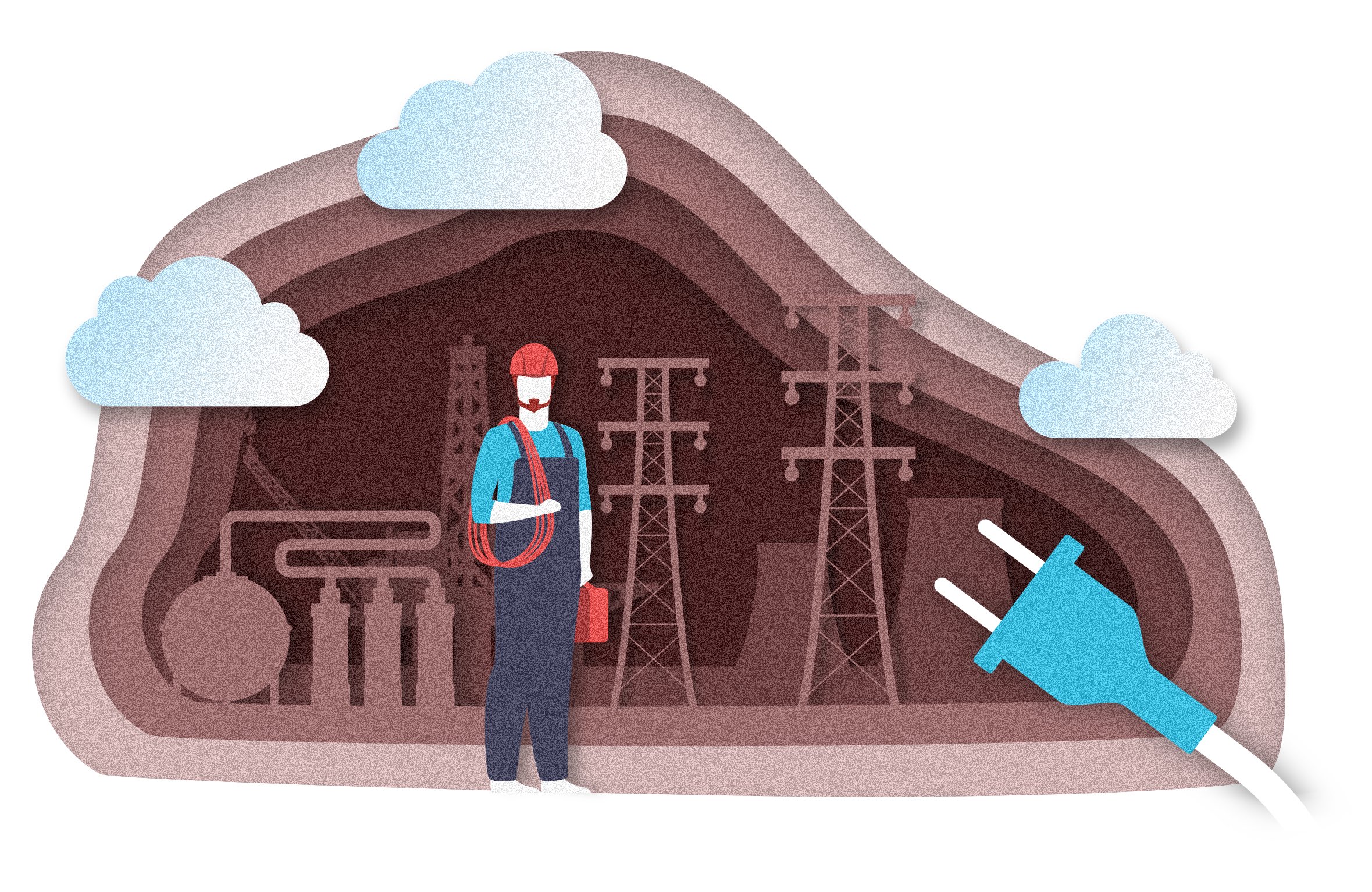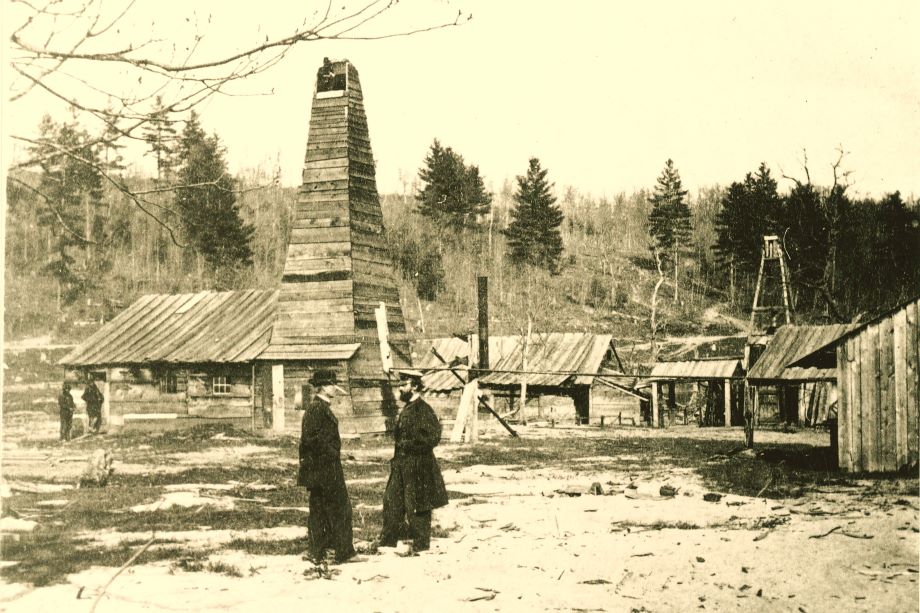Remembering ASME’s Past President Joseph Falcon
Remembering ASME’s Past President Joseph Falcon
ASME Past President, Honorary Member and Fellow Joseph A. Falcon, P.E., who served as the president of the Society in 1992-1993, passed away on July 18, 2019. He was 96 years old.
Falcon, who was born in Brooklyn, N.Y., on March 9, 1923, established a reputation as a leading expert in the power and energy field ― spanning the nuclear, geothermal, fossil fuel, alternative energy sectors as well as oil and energy economics ― and as a dedicated and enthusiastic supporter of ASME during his more than 60-year career in engineering.
In 1987, Falcon founded J.A. Falcon and Associates, Consultants in Energy Systems, where he also served as senior partner. Located in Los Angeles, the company specialized in the area of cogeneration and independent power production, with projects that included enhanced oil recovery cogeneration plants in the Central Valley oil fields near Bakersfield, Calif.
Before establishing his consulting firm, Falcon had worked for 17 years as a project engineering manager at Bechtel Power Corp., overseeing a variety of assignments in 10 countries. Upon the completion of one project in Mexico, Falcon was asked to lead a team of engineers who were conducting evaluations of potential new power plant sites in Mexico, including a facility that was ultimately established near the Sea of Cortés in the state of Sonora. Prior to joining Bechtel, Falcon had been employed at the Atomics International Division of North American Aviation and Fluor Corp.
In addition to his work in industry, Falcon had also established a career in academia, serving as a distinguished lecturer at the University of California, Los Angeles (UCLA), from 1953-1984, where he helped form and became administrator of the university’s Power Engineering Program in 1973. He was also a lecturer at the University of Southern California, Los Angeles, from 1982-1984.
Falcon, who served as ASME’s 111th president, held a number of other distinguished Society leadership positions since joining ASME as a student member in 1939. Beginning his service to the Society as a student guide at the former Winter Annual Meetings (now the International Mechanical Engineering Congress and Exposition) in New York City in the early 1940s, Falcon eventually went on to become a member of the Board of Governors, vice president of the Energy Conversion Group, and chair of the ASME Mexico Section, the Edwin F. Church Medal Committee, the Committee of Past Presidents and the Roe Medal Committee.
Falcon served as member of many other ASME committees and groups over the years, including the Board on Minorities and Women, the International Gas Turbine Institute and the Leadership Development Intern Program ― all of which he also helped launch. In addition, he was a member of the Energy Committee, the Energy and Economics Committee, the Board on Government Relations, the Industry Advisory Board, the Committee on Staff, the Committee on Planning and Organization and the Committee on Investment. He was also a representative to the Archimedes Club, the ASME Joint Awards Boards and the ASME Auxiliary, a member of the advisory committee for the Offshore Mechanics and Arctic Engineering Division, and an ASME representative to the Pan-American Federation of Engineering Societies (UPADI).
Falcon, who was named an ASME Fellow in 1976, received several Society honors including Honorary Membership in 2011 and the ASME Dedicated Service Award in 1995. In 1991, he was presented with the Edwin F. Church Medal, which recognizes eminent service in increasing the value, importance and attractiveness of mechanical engineering education. Falcon was also a Fellow of the Institute for the Advancement of Engineering and served a four-year term from 1994-1997 on the U.S. Agency for International Development’s Energy Training Program.
A registered professional engineer in California and New York, Falcon received his bachelor’s degree in mechanical engineering from Polytechnic Institute of New York University in 1943, his master’s degree in mechanical engineering from Stevens Institute of Technology in Hoboken, N.J., in 1947, and a certificate in business management from UCLA in 1955.
Falcon, who was born in Brooklyn, N.Y., on March 9, 1923, established a reputation as a leading expert in the power and energy field ― spanning the nuclear, geothermal, fossil fuel, alternative energy sectors as well as oil and energy economics ― and as a dedicated and enthusiastic supporter of ASME during his more than 60-year career in engineering.
In 1987, Falcon founded J.A. Falcon and Associates, Consultants in Energy Systems, where he also served as senior partner. Located in Los Angeles, the company specialized in the area of cogeneration and independent power production, with projects that included enhanced oil recovery cogeneration plants in the Central Valley oil fields near Bakersfield, Calif.
Before establishing his consulting firm, Falcon had worked for 17 years as a project engineering manager at Bechtel Power Corp., overseeing a variety of assignments in 10 countries. Upon the completion of one project in Mexico, Falcon was asked to lead a team of engineers who were conducting evaluations of potential new power plant sites in Mexico, including a facility that was ultimately established near the Sea of Cortés in the state of Sonora. Prior to joining Bechtel, Falcon had been employed at the Atomics International Division of North American Aviation and Fluor Corp.
In addition to his work in industry, Falcon had also established a career in academia, serving as a distinguished lecturer at the University of California, Los Angeles (UCLA), from 1953-1984, where he helped form and became administrator of the university’s Power Engineering Program in 1973. He was also a lecturer at the University of Southern California, Los Angeles, from 1982-1984.
Falcon, who served as ASME’s 111th president, held a number of other distinguished Society leadership positions since joining ASME as a student member in 1939. Beginning his service to the Society as a student guide at the former Winter Annual Meetings (now the International Mechanical Engineering Congress and Exposition) in New York City in the early 1940s, Falcon eventually went on to become a member of the Board of Governors, vice president of the Energy Conversion Group, and chair of the ASME Mexico Section, the Edwin F. Church Medal Committee, the Committee of Past Presidents and the Roe Medal Committee.
Falcon served as member of many other ASME committees and groups over the years, including the Board on Minorities and Women, the International Gas Turbine Institute and the Leadership Development Intern Program ― all of which he also helped launch. In addition, he was a member of the Energy Committee, the Energy and Economics Committee, the Board on Government Relations, the Industry Advisory Board, the Committee on Staff, the Committee on Planning and Organization and the Committee on Investment. He was also a representative to the Archimedes Club, the ASME Joint Awards Boards and the ASME Auxiliary, a member of the advisory committee for the Offshore Mechanics and Arctic Engineering Division, and an ASME representative to the Pan-American Federation of Engineering Societies (UPADI).
Falcon, who was named an ASME Fellow in 1976, received several Society honors including Honorary Membership in 2011 and the ASME Dedicated Service Award in 1995. In 1991, he was presented with the Edwin F. Church Medal, which recognizes eminent service in increasing the value, importance and attractiveness of mechanical engineering education. Falcon was also a Fellow of the Institute for the Advancement of Engineering and served a four-year term from 1994-1997 on the U.S. Agency for International Development’s Energy Training Program.
A registered professional engineer in California and New York, Falcon received his bachelor’s degree in mechanical engineering from Polytechnic Institute of New York University in 1943, his master’s degree in mechanical engineering from Stevens Institute of Technology in Hoboken, N.J., in 1947, and a certificate in business management from UCLA in 1955.




